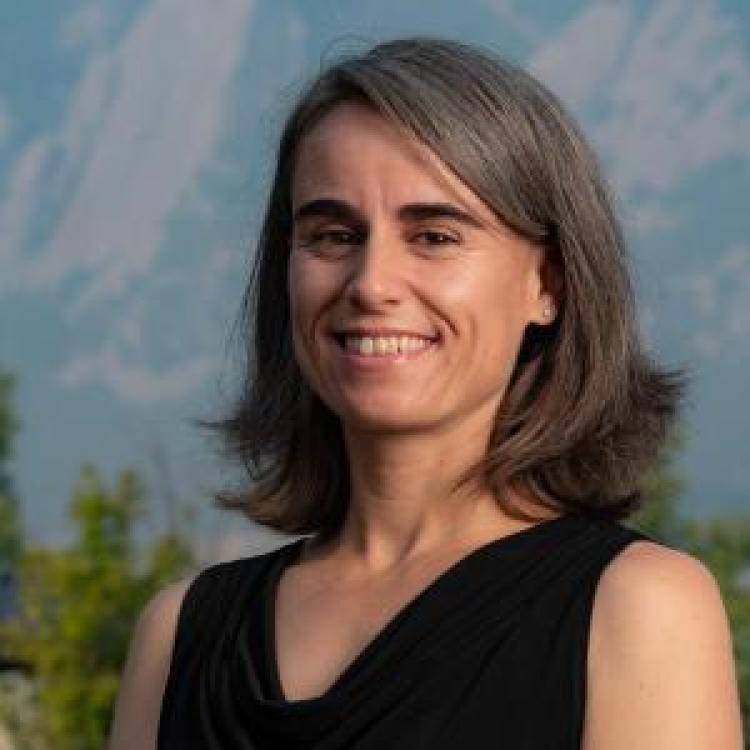CU Boulder anthropologist wins support for Indigenous history comics
Museum Curator Jennifer Shannon garners fellowship to ‘deploy the humanities for the public good’
A cultural anthropologist at the University of Colorado Boulder has won a major grant for her work chronicling Indigenous history in comic books.
Jennifer Shannon, associate professor of anthropology and curator at the CU Museum of Natural History, is one of seven scholars nationwide to win a Whiting Public Engagement Program fellowship, the Whiting Foundation has announced.
The $50,000 fellowship will support “Kumeyaay Comics: Indigenous Histories of California,” a project that builds on the success of Shannon’s NAGPRA Comics.

Jen Shannon
The aim of NAGPRA Comics, which launched in 2017 with archaeologist Sonya Atalay (Anishinaabe-Ojibwe), and archaeologist and comics creator John Swogger, is to tell true stories about repatriation from Native Nations' perspectives.
Taking its name from the federal Native American Graves Protection and Repatriation Act (NAGPRA) of 1990, the series helps Native peoples, museum professionals, university students and others understand both the obligations and impact of the legislation, Shannon states.
The comic series also illustrates how, “when tribes are equal partners in repatriation, the process can be a way for Native nations and museums to forge new and mutually beneficial relationships—and a way for museums to engage in supporting cultural continuity.”
At San Diego Comic-Con in 2019, members of the NAGPRA Comics team met Mike Connolly, tribal historian of the Campo Kumeyaay Nation, a federally recognized tribe 60 miles east of San Diego, and Stan Rodriguez, tribal historian and professor at Kumeyaay Community College.
Together, they began a new initiative to respond to the need for more accurate and Indigenous-centered accounts of California history in both mainstream schools and among Kumeyaay communities.
Shannon and her collaborators will use the fellowship to support a Kumeyaay-directed, community-based research project on Kumeyaay history, which will inform a series of co-created comics that illustrate Kumeyaay history and lifeways.
As a form of what Shannon and Swogger call “community engaged comics,” the project team will work with community members to conduct oral histories and archival research, visit museum collections, host comics workshops, advise Kumeyaay artists in making comics, and create a traveling banner exhibit for local cultural centers and schools.
Once the comics are created, the team will design associated lesson plans in collaboration with the San Diego Office of Education, answering the California Department of Education’s recent call for more Native American and Indigenous Studies curriculum with materials that underscore tribal perspectives on their own history.
When they step beyond the walls of a university, the humanities can enrich public life in unique and vital ways: amplifying unheard or forgotten stories, giving public discourse depth and context, and applying essential insights from the long history of human inquiry.”
Shannon and her collaborators say they hope Kumeyaay Comics will lead to a broader, multi-tribal community engaged comics series, Indigenous Histories of the Americas, that further contributes to public scholarship and public education.
“I really appreciate the support and value the Whiting Foundation directs towards community-engaged research, and I am thrilled to be in conversation with a group of fellows who are doing such inspiring work,” Shannon said.
The Whiting Public Engagement Program is a national grant founded to “champion the public humanities in all forms” and to highlight the roles scholars play in work to deploy the humanities for the public good.
Since it began in 2016, the program has given $2.4 million to launch and expand projects in the United States and beyond. Winners are selected through a competitive process beginning with nomination by a university, scholarly society or state humanities council and proceeding through two further stages of peer review by expert public humanists.
In addition to seven $50,000 fellowships, the foundation this month also awarded five $10,000 seed grants to a cross-section of public-humanities collaborations. Their projects draw on topics from the global history of paper currency to the culture of rural Hispanic communities in eastern Arizona, and they use media from traveling museum exhibits to virtual-reality film to community oral-history workshops.
“When they step beyond the walls of a university, the humanities can enrich public life in unique and vital ways: amplifying unheard or forgotten stories, giving public discourse depth and context, and applying essential insights from the long history of human inquiry,” the Whiting Foundation said.
The Whiting Foundation supports writers, scholars and the stewards of humanity’s shared cultural heritage.

